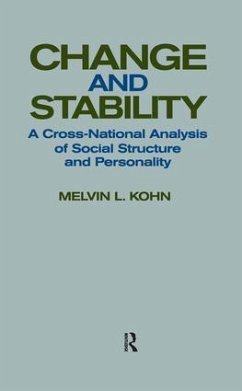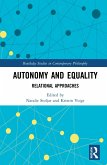In societies experiencing radical social change, do the effects of people's social positions on their personalities change or remain much the same? This book addresses this and related questions through an impressively rigorous cross-national study of social structure and personality in stable societies (the U.S., Poland when it was socialist, and Japan) compared to former socialist societies (Poland and Ukraine) during their transition to nascent capitalism. Kohn tests his incisive interpretation of the relationships between position in the larger social structures of class and stratification and job conditions and personality. Initially developed and tested in a longitudinal study of men employed in civilian occupations in the United States, the interpretation is systematically tested and enlarged in studies in Japan (to see whether it applies to a non-Western industrialized society) and in Poland when it was socialist (to see whether it applies to the social and economic system of Soviet-dominated Eastern Europe). Then, with the demise of the Soviet Union, the comparisons are extended to both men and women, whether or not employed, in the urban areas of Poland and Ukraine during their transition to nascent capitalism (to see whether the interpretation applies to the entire urban populations of these countries, even under conditions of radical social change). Despite personality being highly unstable during the process of radical social change in Ukraine from 1992 to 1996, the relationships of social structure and personality remain remarkably stable and consistent with those of countries studied during times of much greater social stability.








